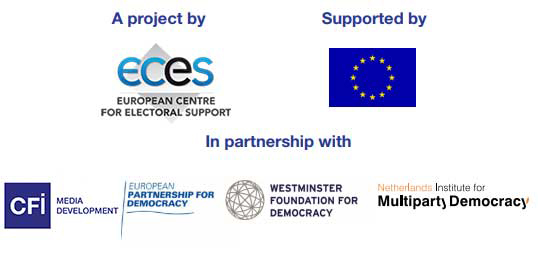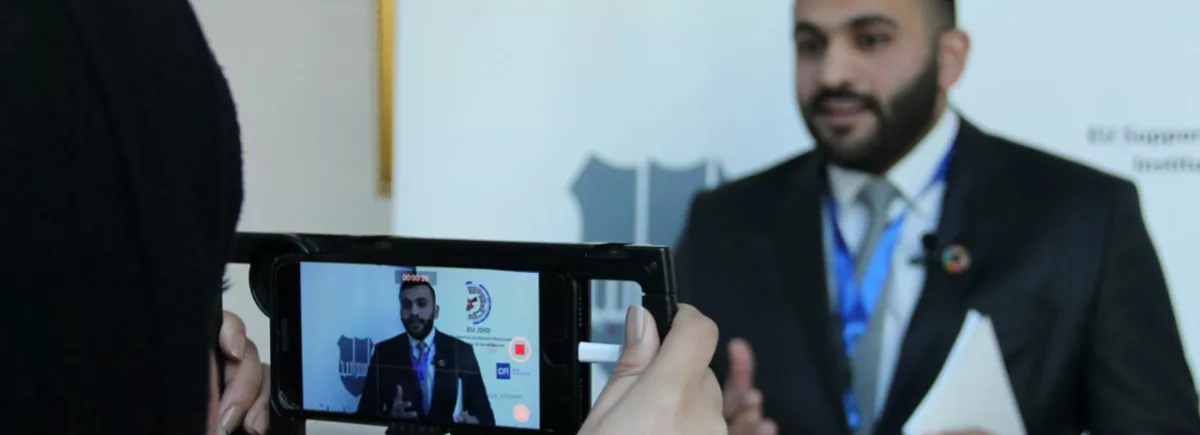
Social networks and politics in Jordan
Related project
EU JDIDOn 21 and 22 January 2019, a conference took place on the topic of "social networks and politics" in partnership with the Center for Strategic Studies at the University of Jordan.
The conference held on the university campus in Amman assembled an audience and participants from various fields, all particularly active on social networks or specialists on the subject: journalists, lawyers, representatives from institutions benefiting from the EU-JDID programme (the Chamber of Deputies of Jordan, the Independent Election Commission, political parties), deputies, representatives from civil society organisations and universities.
In a country where most of the population is younger than 35 years old, social networks have become a source of information more frequently used than traditional media. Social networks and online platforms are also a space for social mobilisation and a protest channel, these protests being seldom reported on due to pressure exerted by the authorities on journalists and restrictions to the freedom of information (in 2017, Jordan was 132 nd of 180 in the press freedom index published by Reporters Without Borders/RSF).
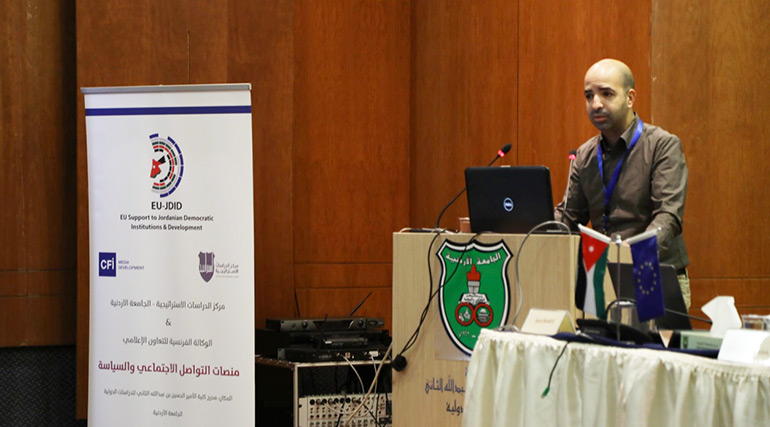 Anass Bendrif, journalist specialising in social networks and trainer for CFI
Anass Bendrif, journalist specialising in social networks and trainer for CFI
Through 6 panels addressing the audience, CFI and the Center for Strategic Studies put forward their view of, and offered a discussion on, the role of social networks in the political domain in the context of social movement ongoing in Jordan since June 2018 and in view of general elections in 2020. Social networks have been addressed as a tool for political participation and social mobilisation, political communication, as a space for freedom of expression controlled by the authorities and a catalyst for spreading rumours and hate speech but also as a catalyst for societal innovation, notably on the part of young Jordanians.
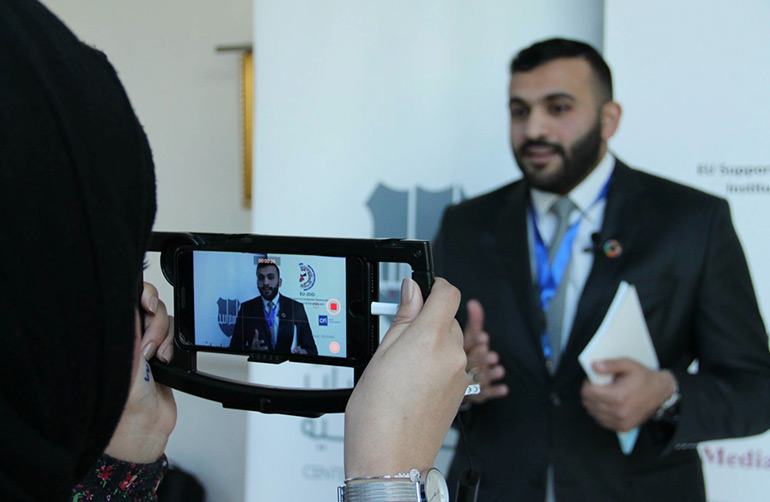 Eyad Al-Olaimat, Entikhabate Representative and young leader
Eyad Al-Olaimat, Entikhabate Representative and young leader
Echoing recent parliamentary debates in particular that led to refusal by the deputies of repressive amendments to the law on cybercrime proposed at the start of 2018, the participants debated whether or not regulating the use of social networks by citizens was necessary.
"Following the current is better than constructing dams against it", stated the President of the Independent Election Commission, Dr Khaled Kalaldeh, referring to the negative opinions on the use of social networks.
According to a participant representing a civil society organisation, "
This discussion has been one of the most open and honest I have ever had in Jordan".
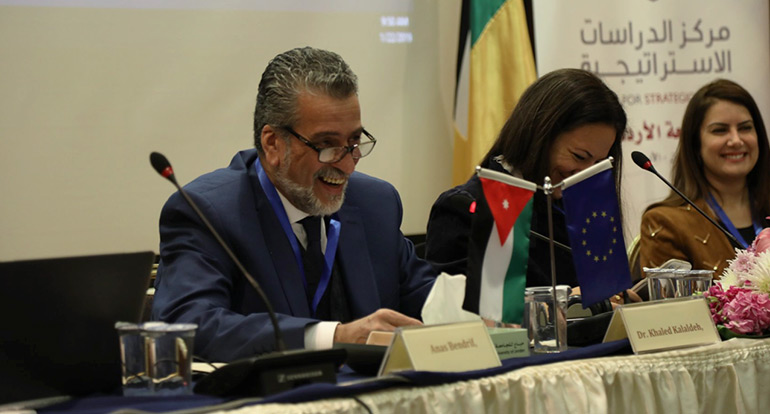 Dr Khaled Kaladeh, President of the Independent Election Commission
Dr Khaled Kaladeh, President of the Independent Election Commission
Social Media and Politics Forum Program (PDF)
